Text
Bardo Todol [La Cinta Negra]
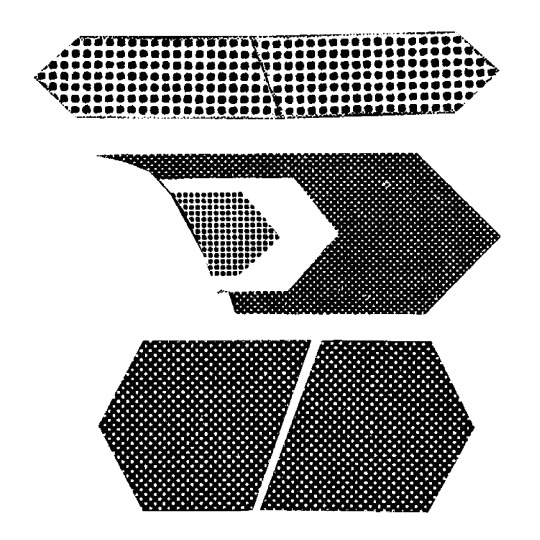
Release date: May 01, 2024
Catalog no. zappak-014
[Tracklist]
1. Las cintas batracios / The toad tapes [10:46]
2. Las cintas de la ciudad del viento / The tapes from the wind city [12:02]
3. Las cintas sonrisas / The smile tapes [16:08]
Excerpt: https://soundcloud.com/zappak/zappak-014
Tapes explorations formed from 2016 to 2023.
Bardo Todol is Pablo Picco with several sounds from Nico and Cina Picco during their domestic and non-domestic life.
In these three tracks you will hear the impressionistic sounds of monsters of Magnetophon tapes, plus deformed field recordings, trumpets, clarinets, flutes, shouts, distorted radios, drums, analog and broken synths.
Recorded in Salsipuedes, Córdoba, Argentina.
---
Bardo Todol (Pablo Picco) is an artist in Argentine. He has been creating many cassette tape works as solo works and sometimes collaborating works so far, and these were released on the labels such as Sucata Tapes, Full Spectrum, Never Anything, Zoomin' Night, and presses précaires.
In this work, there are full of his daily life sounds melted into a tape recorder. Environmental sounds, life sounds, his family's sounds, various instruments sounds, etc. Everything is mixed in a tape, its resolution is degraded, and the sounds are muddy. This will give a fun to the listeners to pick them up one by one and imagine what sounds sounding in every moment.
Bardo TodolことPablo Piccoはアルゼンチンの作家。これまでにソロやコラボレーションをつうじて様々なカセット作品を制作し、Sucata Tapes、Full Spectrum、Never Anything、Zoomin' Night、presses précairesなどのレーベルから発表している。
本作は彼の日々の生活をテープレコーダーのなかに溶解処分したかのような音であふれている。環境音や生活音、彼の家族の声、さまざまな楽器の音など。それらがすべてひとつのテープのなかに取り込まれ、その解像度はどろどろと溶けてしまっている。聴き手には、それらをひとつひとつすくい上げては何の音が聞こえているのか想像する楽しみを与えてくれる。
---
Bardo Todol (Pablo Picco)
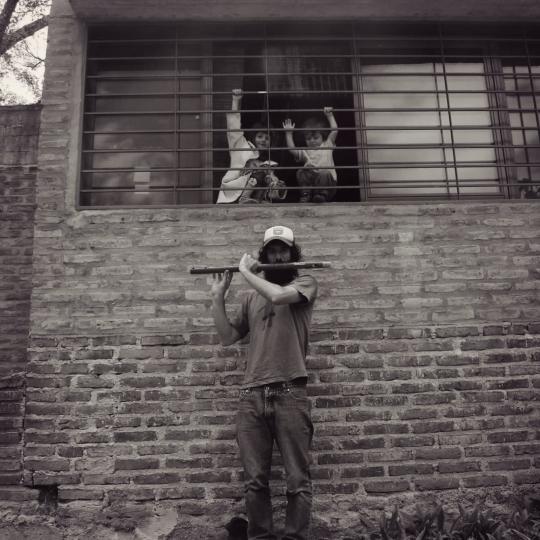
Pablo Picco records and makes music under the name of Bardo Todol. His music is a mix of various music concréte techniques that involves tapes, flutes, field recordings, noise and acoustic elements. Audio collages that are assembled through many years and many improvisations and put together on distant and lonely nights: all of them have this “natural” or “impressionistic” feeling. A new realm of sounds and colours that came out through the speakers with a ferric smell.
In all this distorted resonance, his children, Nico and Cina, have a strong presence making noises, shouting, singing and making non-child sounds.
He is also a visual artist that makes collage art that illustrates the front covers of his albums.
bardotodolmonofonia.bandcamp.com
0 notes
Text
Yukiko Shiina Sakurazawa & Kon Okuma [DUO]
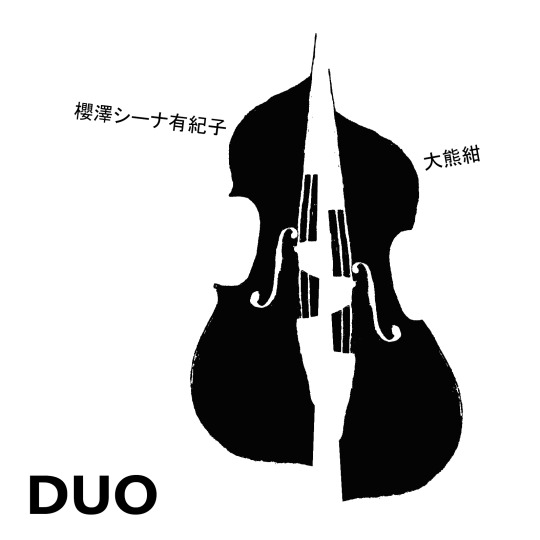
Release date: May 01, 2024
Catalog no. zappak-013
[Tracklist]
1. Part 1 [13:47]
2. Part 2 [06:39]
3. Part 3 [14:02]
4. Part 4 [04:37]
5. Part 5 [15:18]
Excerpt: https://soundcloud.com/zappak/zappak-013
Yukiko Shiina Sakurazawa: double bass
Kon Okuma: double bass
Recorded live at Ftarri, Tokyo, Japan on January 6, 2024.
Recorded by Ftarri
Directed, edited, and mixed by Leo Okagawa
---
Yukiko Shina Sakurazawa is a double bass player who is mainly active in the field of classical music. Kon Okuma, on the other hand, is a double bass player who mainly works in the jazz field. However, the both also occasionally perform improvisations at a venue "Ftarri". So, wondering what would happen if these two people with different backgrounds performed together, zappak planned an event.
Sakurazawa mainly used an approach using a bow, while Okuma mainly used an approach using fingers and tools like sticks. The sound of the two of them was sometimes silent, other times eloquent, and they continued to weave their sounds together, never leaving each other. It seemed like a journey for people from different worlds to find a common language.
On the day of the event, we performed two impromptu performances of around 30 minutes each. But there were a few changes in the middle, so in this work, zappak divided them into 5 parts and put them rearranged.
櫻澤シーナ有紀子は主にクラシックなどのフィールドで活動するコントラバス奏者。対する大熊紺は主にジャズのフィールドで活動するコントラバス奏者。しかしながら、二人はともにFtarriというヴェニューにおいて不定期に即興演奏をおこなっている身でもある。そこで、バックグラウンドの異なるこの二人が共演するとどのようなことが起こるのだろうと思い、zappakはイベントを企画した。
櫻澤は主に弓を使用したアプローチをとり、大熊は主に指弾きと棒などの道具などを使用したアプローチをとった。二人による音はときに寡黙に、またあるときは雄弁に、付かず離れずを繰り返しながら音を紡いでいった。それは異なる世界の者たちが共通言語を見つけるまでの軌跡のようであった。
なお、当日は30分前後の即興演奏を2度おこなったが、何度か転調のようなものが感じられたため、本作では5つのパートに分割し、それらを並べ替えた録音を収録している。
---
Yukiko Shiina Sakurazawa (櫻澤シーナ有紀子)
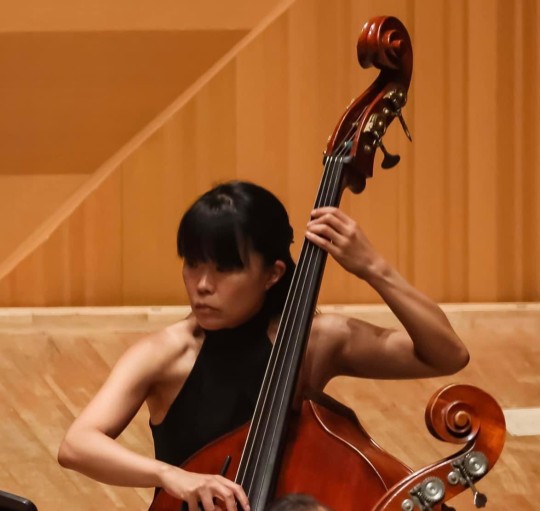
A double bass player. She performs orchestral music, opera, musicals, etc. mainly in the Tokyo metropolitan area. And she appeared on the 19th Keizo Saji Award winning work "the鍵Key". She also started playing improvised performances mainly at Ftarri since 2023. In addition, she produces concerts and appears in independent films. Travelling is her hobby.
コントラバス奏者。首都圏を中心に、オーケストラにて、管弦楽、オペラ、ミュージカルなどを演奏。第19回佐治敬三賞受賞作品「the鍵key」出演。 2023年より主にFtarriにて即興演奏を行う。他に、演奏会企画制作、自主制作映画に出演。旅が好き。
---
Kon Okuma (大熊紺)
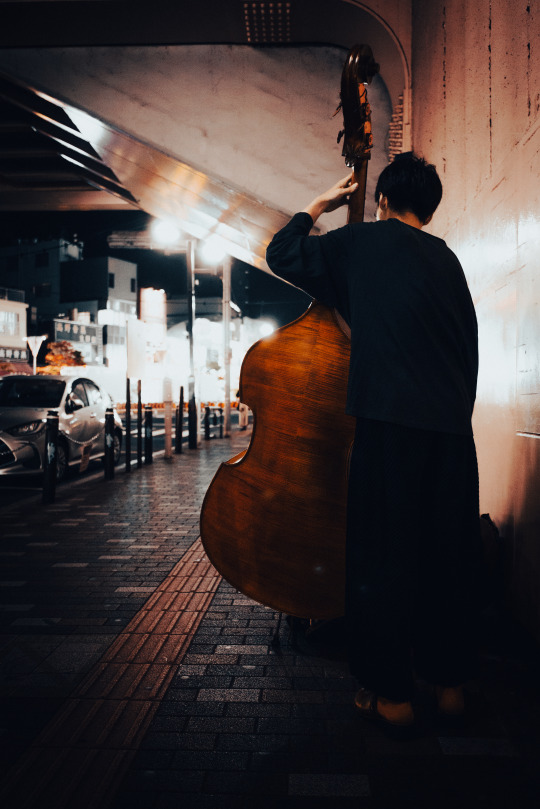
Upon entering university, he got a double bass and started playing jazz. After that, through various double bass players, he became attracted to the possibilities of a double bass, which is ubiquitous in the fields of music and non-music. After graduating from university, he moved to Tokyo and occasionally performs.
大学進学と同時にコントラバスを手にし、ジャズを始める。その後、多様なコントラバス奏者を通して音楽や音楽でないものの領域で偏在/遍在するコントラバスの可能性に惹かれていく。大学卒業後、東京に居を移し折に触れて演奏活動を行う。
www.instagram.com/okumakon/
0 notes
Text
Charis Pazaroulas [TRANSCENDENCE I]
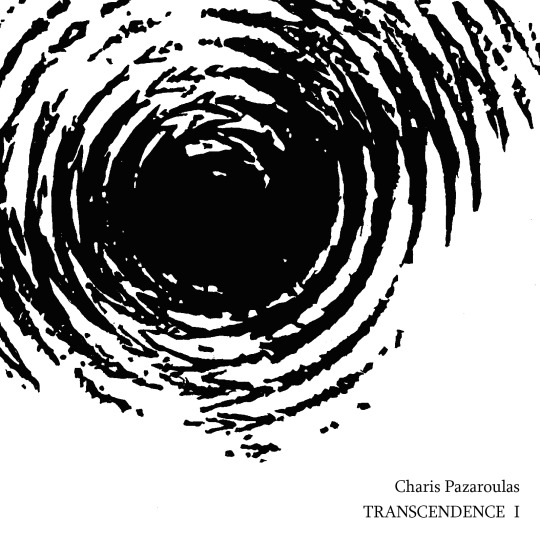
Release date: May 01, 2024
Catalog no. zappak-010
[Tracklist]
1. T1 KOAN - for James Tenney 15:38
2. T2 TO B E 07:04
3. T3 NOW 02:34
4. T4 HER E 05:38
5. T5 ONE 03:50
6. T6 BREA TH 10:00
7. ( silence ) 05:09
8. T0 AT MA N 10:02
Excerpt: https://soundcloud.com/zappak/zappak-012
TRANSCENDENCE I is a musical journey, an exploration of oneself through the rich sonic spectrum of the modern double bass. Taking as its starting point the transcription, study and reinvention of Koan (1971) for solo violin by James Tenney (1934-2006), the music invites the listener to carefully explore the various qualities of sound through a minimalistic approach of musical gestures. James Tenney states in a 1978 interview: "What they can do is begin to really listen to the sounds, get inside them, notice the details, and consider or meditate on the overall shape of the piece, simple as it may be. It's often interesting how within a simple shape there can be relationships that are surprising."
---
Charis Pazaroulas: double bass, voice
Recorded at Kaliani village with the remote facilities of Grindhouse Studios Athens, September 2017.
Additional recordings at Grindhouse Studios Athens, January 2021.
Engineered and recorded by George Bokos
Mixed by Stelios Mihas and Charis Pazaroulas at 4D Studio
Mastered by George Bokos at Grindhouse Studios Athens
Produced by Charis Pazaroulas
Artwork by Leo Okagawa
All music by Charis Pazaroulas
---
Charis Pazaroulas is a double bass player in Greece. He plays as a member of Athens State Orchestra, TETTTIΞ, and Quinteto TANGartO. And in this work, he worked on a solo production, incorporating multilayer recordings of a double bass and his own voice.
[TRANSCENDENCE I] opens with a song inspired by the composer James Tenney's piece 'Koan'. Each song has a stoic minimalism that makes listeners feel a sense of tension. However, by listening more carefully, we can find melodic elements within the pieces. Furthermore, Pazaroulas's voice, layered over the sound of the double bass, has a mystique, and there is his individuality throughout the work, which refuses to be expressed in a single word.
Charis Pazaroulasはギリシャのコントラバス奏者。アテネ国立管弦楽団のほか、TETTTIΞやQuinteto TANGartOのグループにも所属し、演奏をおこなっている。本作で彼はコントラバスと自身の声を織り交ぜた多層的な録音によって、ソロでの制作に取り組んだ。
[TRANSCENDENCE I]は作曲家James Tenneyによる作品'Koan'にインスピレーションを受けた楽曲で幕を開ける。それぞれの曲にはストイックなミニマリズムがあり、聴き手に緊張感を与える。しかし、聴き込んでいくにつれて曲のなかにメロディアスな要素を見つけることができるはずだ。さらに、コントラバスの音に重ねあわされるPazaroulasの声には神秘性があり、一言で言い表せるような表現を拒む彼の個性を作中のいたるところで感じることができるだろう。
---
Charis Pazaroulas
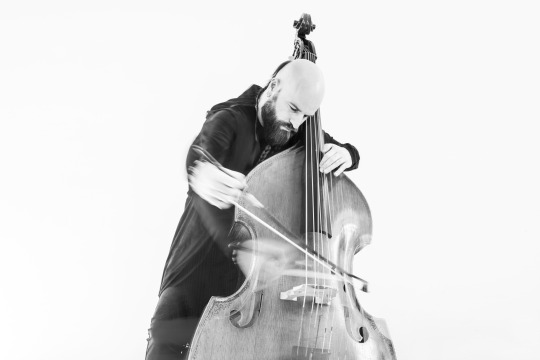
Charis Pazaroulas is the second principal double bass player of the Athens State Orchestra, member of the contemporary music ensemble TETTTIΞ and the Quinteto TANGartO. He shows a keen interest in the study, interpretation and performance of contemporary and experimental music. He has performed as a solo artist or member of an ensemble, in festivals such as: Athens Epidaurus Festival 2023, Tectonics Athens '22, 7th Kallio New Music Days, Tulkinnanvaraista and Impuls Festival - MinuteConcerts. He is a PhD candidate at the Department of Music Science & Art at the University of Macedonia, where his research focuses on the works for solo double bass and electronics by Greek composers.
linktr.ee/charispazaroulas
0 notes
Text
Gil Sansón [Esto y Aquello (El Gris En Nuestras Vidas)]
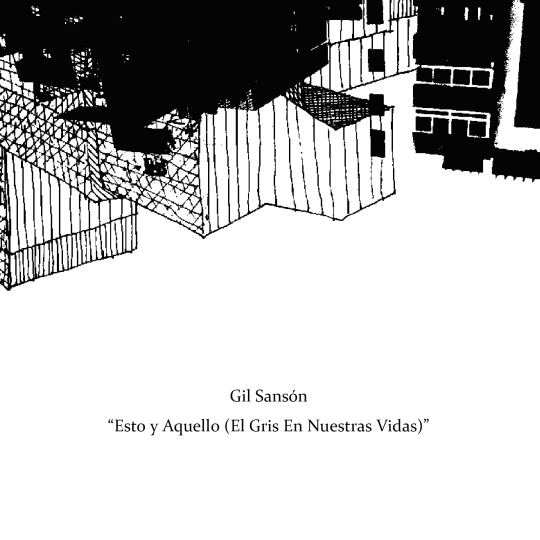
Release date: May 01, 2024
Catalog no. zappak-011
[Tracklist]
la surface du pain [22:00]
fragmentos discretos [03:16]
sueño errante sobre la hierba seca [21:25]
Excerpt: https://soundcloud.com/zappak/zappak-011
Gil Sansón: field recordings, electronics, objects, editing
Recorded and edited at home during 2023
---
Gil Sansón, a Venezuela-based artist, released his solo works on Full Spectrum and Unfathomless, and so on. He also does collaborations with such as Bruno Duplant and Lance Austin Olsen, and they were released on Confront, Suppedaneum, and elsewhere. In every work his sound has a mysterious texture, and its uniqueness is quite interesting and different with any other artists.
"Esto y Aquello (El Gris En Nuestras Vidas)" (in English, "This and That (The Grey in Our Lives)") starts with a quiet noise. We can gently hear the sounds of the city, and typewriter sounds and radio sounds like a monologue. Silences and sounds goes back and forth like a ripples. Every sound fades into a space, and its boundaries between concrete sounds and abstract sounds will have melted into an indistinct gray space while you see a daydream.
Gil Sansónはベネズエラの作家。これまでにFull SpectrumやUnfathomlessなどからソロ作品を発表。また、Bruno DuplantやLance Austin Olsenなどとの共作もあり、それらの作品はConfrontやSuppedaneum、elsewhereなどから発表されている。どの作品においても不思議な質感をもった音を使用していて、その独特さはほかのどの作家とも異なる面白みをもっている。
「これとそれ(生活のなかのグレー)」と題された本作は、静かなノイズで幕を開ける。徐々に街の音が聞こえはじめ、独白のようなタイプライターの音やラジオの音が響く。さざ波のように寄せては返す音と無音のあいだで、すべての音は空間の中に溶け込み、気づいたときには、環境音や物音と電子音の境界線は判然としないグレーな空間のなかに溶けていっていることだろう。
---
Gil Sansón
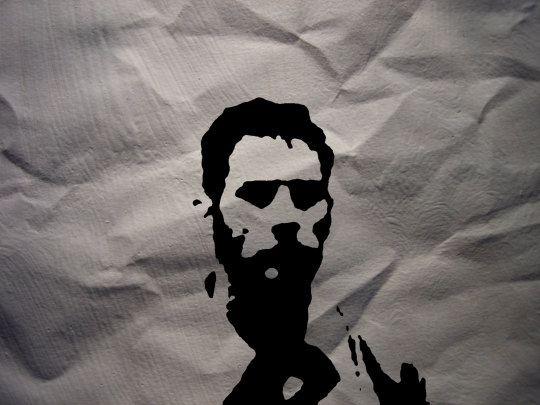
Gil Sansón (Valencia, Venezuela, 1970) is a composer and multimedia artist, working with a number of notions regarding place, memory and self imposed limitations, often of a conceptual origin. His audio work and music has been published on a number of international labels such as Winds measure, Elsewhere, Confront and many others. Currently living in Caracas.
0 notes
Text
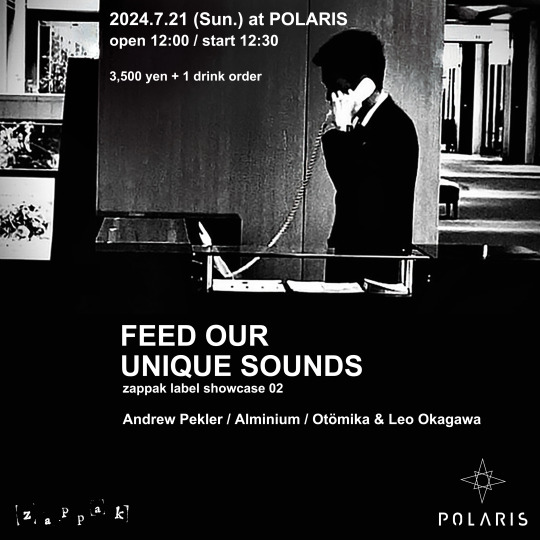
【zappak label shocase 02】
2023.7.21 (Sun.) open 12:00 / start 12:30
“Feed Our Unique Sounds” at 小川町POLARIS (Ogawamachi, Tokyo)
Admission: ¥3,500 + 1 Drink Order (¥700)
Reservation / 予約: [email protected]
About POLARIS:
東京都千代田区神田錦町1-14-13 LANDPOOL KANDA TERRACE 1F
1-14-13 LANDPOOL KANDA TERRACE 1F, Kanda Nishikicho, Chiyoda-ku, Tokyo
https://polaristokyo.com
POLARIS EVENT PAGE: TBA
[ LINE UP ]
・Andrew Pekler [from Berlin]
・Alminium
・Otömika + Leo Okagawa
---
Andrew Pekler [from Berlin]
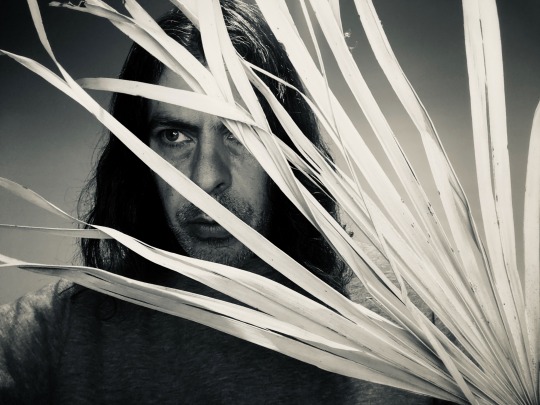
ウズベキスタン出身、ドイツ在住のアーティスト。デジタル・サンプリングとアナログ合成の技術を使用して、サウンドとアーカイブされた音楽素材を再文脈化する。 スタジオ作品のほか、演劇、ダンス、映画用の音楽を作曲もおこなっており、さらには、常に音と組み合わせてビデオやインスタレーション作品も制作している。
これまでにKranky、Faitiche、Shelter Press、Staubgold、Senufo Editionsなどのレーベルからソロacおよび共同音楽作品をリリースしており、zappakからは2023年に[Khao Sok Extension]を発表。
なお、今回は彼の最新セット、”SG”としてのパフォーマンスをおこなう。
youtube
---
Alminium
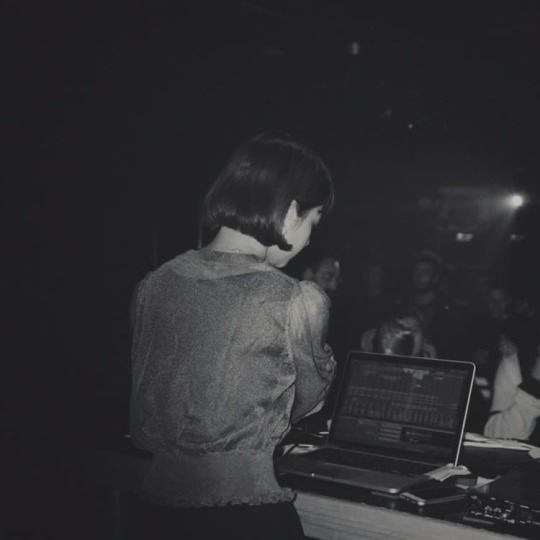
2017年から音源制作を開始。Contact、神楽音など東京都内のクラブを中心にライブ活動を行う。フィールドレコーディング音源を加工したドローンやアンビエント、金属的な重低音、コラールや不規則ビート群が絡む実験テクノなどを化合させたno mercy style.
2021年USのレーベルforgot imprintより、アルバム[area-β]をリリース。2023年Yuichi Yonezawa(ピアノ)とのデュオ・アルバム[IN MAY]をリリース。また、2023年末にコンピレーション[Medium Ambient Collection 2023]に参加。最新作は2024年3月、4トラック入りEP[Odora in Scapes]をBandcampにてセルフリリース。
---
Otömika

“Sound + collage + human”をコンセプトに、アナログMTR、アナログ機材、iPhone、カセットテープなどを使用し様々な音楽制作活動を行う。THREEやTHE NORTH FACEなどの映像音楽やAURALEEのコレクションなどにも楽曲提供。ライブパフォーマンスでは独自の発音で歌う生々しい声やフィールドレコーディングを主軸に実験的でジャンルレスな演奏をする。
youtube
---
Leo Okagawa
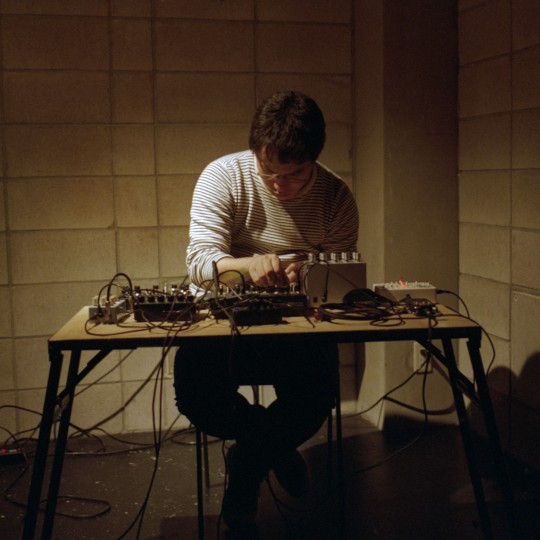
サウンドアーティスト。2014年よりフィールドレコーディングを始め、録音した素材やアナログ機器のノイズ、電子音による多層的なコラージュ作品を制作。2017年からは即興演奏もおこなう。いくつかの電子機器類を使用し、シンプルなトーンの組み合わせによる構造的な可能性を模索する。
2022年からレーベルzappakを運営。本人以外のアーティストによる作品を発表している。
youtube
0 notes
Text
https://www.westzeit.de/rezensionen/?id=23840
Westzeit reviewed p.o.p.'s "Alien Stewardess".
Das dritte Album der Berliner "impro-supergroup" P.O.P. (PSYCHOLOGY OF PERCEPTION) heißt sehr treffend "Alien Stewardess" (Zappak) und erscheint auf dem dritten Label, auf Monotype (Täbriz von 2013) und FMP (Ikebana 2016) folgt nun die japanische Plattform Zappak - Nora Krahl (clo), Hannes Strobl (el.b), Elena Kakaliagou (frh) und Reinhold Friedl (p) verteilen ihre Gaben weitläufig. Was mich an dem auf 2 CDs verteilten 5-Viertelstunden-Monster besonders beeindruckt ist die klangliche und konzeptionelle Dichte, die die Vier mit vergleichsweise einfachen Mitteln erzeugen. Neben hallendem StörSpannungsKnuspern schweben da eigenartig geflochtene CelloSounds zu PianoPräparaten und Kakaliagous unverwechselbaren HornKnurren durch die Gehörgänge. Für den vollen immersiven Genuß erfordert das Ganze allerdings auch ein wenig Konzentration und Kontemplation. 5
0 notes
Text
SilenceAndSound reviewed p.o.p.'s "Alien Stewardess".
Le quatuor p.o.p (psychology of perception) constitué de Nora Krahl (violoncelle), Hannes Strobl (basse), Elena Kakaliagou (cor d’harmonie) et Reinhold Friedl (piano), compose une musique de croisements et de variations superposées.
Alien Stewardess combine l’art de l’étrangeté pour brouiller les interférences constantes qui viennent perturber avec subtilité, la combinaison créatrice des quatre artistes.
Les pistes sont un terrain de jeu, où les instruments s’évadent de leur vocation première, pour se transformer en formes singulières, avalanche de péripéties spectrales et d’ombres projetées sur des canevas de couleurs indéfinissables.
p.o.p. (psychology of perception) accumule les directions sans chercher à s’éloigner d’une certaine fantaisie grimaçante aux allures hantées. Ici tout est jeu d’ombres, de grincements et de flottements, de temps étirés et de perte de repères. Fascinant. (Reviewed by Roland Torres)
0 notes
Text
Field Notes reviewed "Alien Stewardess" (Reviewed by Kristoffer Cornils)
Elena Kakaliagou (French horn), Hannes Strobl (electric bass), Nora Krahl (cello) and Reinhold Friedl (piano) are p.o.p., short for Psychology of Perception, and the album with the pleasantly enigmatic title »Alien Stewardess« for the Japanese label Zappak is only their third in just over a decade. The long wait since »Ikebana« from 2017 and the improv trio's rather sporadic appearances together is made up for by its running time, however: the shortest of the five tracks is ten minutes long, the longest just under 30 and the others clock in at over 20 minutes each. This can be explained by the fact that the four musicians take their project’s name seriously and allow their different perceptual mechanisms to intertwine. Their play is one of constant processing of and reaction to that of the other members, formulated less as answers than as questions: What is this doing to me, to you, to us?
0 notes
Text
Salt Peanuts reviewed "Alien Stewardess" (Reviewed by Eyal Hareuveni)
Alien Stewardess expands and distills p.o.p.’s focus on perceptual psychology and kinetic memory, and asks what the musicians’ bodies know. The quartet searches for labyrinthian, «transdimensional» sonic architectures that rely on subtle and elusive repetitions, idiosyncratic sonic-kinetic perspectives and some disturbing interferences, with brief melodic segments. p.o.p. weaves patiently and methodically these minimalist, almost ethereal architectures like a carpet, with delicate patterns of similarity and swift, rhythmic twists, and great focus on varied timbres, using an imaginative array of extended techniques. It sounds organic but very strange yet, surprisingly, sensual. Like being guided on a mysterious journey by a friendly alien stewardess.
0 notes
Text
taz reviewed "Alien Stewardess" (Reviewed by Robert Miessne)
Neue Musik aus Berlin: :Dunkle Materie, helle Signale
Mit Radiovibes und Spieluhr in Richtung Zukunft: „Alien Stewardess“, das neue Album des experimentellen Ensemles P. O. P., ist ein Weckruf im Weltall.
Vom Webstuhl in das Weltall über den Wiesenklee, so ungefähr könnte man die Laufbahn von P.O.P. umreißen. Auf dem zwischen 2008 und 2013 entstandenen Debütalbum „Täbriz“ bezog sich das experimentelle Ensemble, damals ein Trio aus Reinhold Friedl (Piano), Hannes Strobl (Bass) und Hayden Chisholm (Altosaxophon), auf die Strukturen iranischer Teppiche. 2016 erschien „Ikebana“. Aus P.O.P. war ein Quartett geworden: Nora Krahl (Cello), Elena Kakaliagou (Waldhorn und Stimme), Strobl und Friedl spielten von der japanischen Kunst des Blumensteckens inspiriert. Für „Alien Stewardess“ sind sie unter die Sterngucker gegangen.
Die Doppel-CD umfasst fünf Kompositionen. „Celestial Cabaret“, mit zehn Minuten die kürzeste, macht den Anfang: Dunkle Materie, helle Signale, nach fünf Minuten setzt eine Spieluhrmelodie ein. P.O.P. gönnen sich auf dem Album mehrmals kurze, liedhafte Momente.
„Cosmic Concierge“ klingt in etwa wie die Radiostation, welche die kosmische Hausmeisterin auf Nachtschicht hört. „Intangible Vibrations“, eine ganze halbe Stunde, beginnt mit einem Hab-acht-Moment aus schrillem Piano-Interieur und dunklem Horn. P.O.P. ist ein Ensemble kühner Nuancen. „Galactic Grace“ könnte die große Ruhe nach dem Sternensturm sein; „Transdimensional Melodies“ entpuppt sich als Symphonie mit dem Paukenschlag, nur kommt der Weckruf vom Cello.
Dass jeder Titel auf „Alien Stewardess“ sich wie eine Krautrock-Hommage liest, kann sowenig Zufall sein, wie der Name des Quartetts: P.O.P. steht für Psychology of Perception. Wahrnehmungslehre trifft gut, worum es hier geht.
2 notes
·
View notes
Text
Vital Weekly reviewed latest three releases on zappak.
Takashi Masubuchi & Yosuke Morone – Particles and Waves
Kaori Komura & Yutaka Hirose – Diastrophism Dance
p.o.p. (psychology of perception) – Alien Stewardess
The Japanese Zappak label is always surprising, with music on the fringe of improvisation, sound art, and conceptual art, plus it usually introduces new names. New names such as Yosuke Morone, who plays electronics and prepared sounds in duet with Takashi Masubuchi on acoustic guitar. I know him from various releases on Ftarri, which is also the location where they played on January 28, 2023, and it’s the first time they played together. Radical music is a perfect example of what the label stands for. Two pieces on this CD are named after their duration, ‘[34:18]’ and ‘[33:02]’. The first opens with a high-frequency sine wave sound, which is piercingly loud (and I can’t imagine what it sounds like to someone thirty years younger than me), and the guitar plays individual notes, very quiet and sparse. Think Taku Sugimoto but with a backing of sine waves. Slowly, these sine waves (created with function generators) alter in white noise and, towards the end of this piece, intense bass sounds. The high piercing tones don’t return in the second piece, in which Morone’s contribution is quite different. More like obscured tape hiss, being slowly amplified. In both pieces, there is a gradual build-up towards something much louder (but not noisy). There isn’t much interaction between both players, but that’s the idea of the music here: no responding to each other. The guitar sounds clean, while the electronics are deliberately vague and strange. This works better in the second piece than in the first piece.
The name Kaori Komura popped up in Vital Weekly 1393 when she worked with Kazumoto Endo on a track for a compilation, and she plays Korean percussion instruments. In the 1980s, she was a hardcore punk band GISM member. Yutaka Hirose is a tuba player from Tokyo. He’s also “a member of some bands and ensembles such as “tail”, “Zayaendo”, “Aosaba” and “Itsuki-Hirose”. This CD shows a more traditional side of Zappak’s interest in improvised music. The two pieces were recorded a year ago at Permian in Tokyo. Both instruments sound the way they are supposed to, even when I haven’t got a particular notion about the percussion; it sounds percussion, drum, and cymbal-like. I think their music is all about interaction, and they cleverly play with the notion of loud versus quiet. Sometimes, they are both quiet or loud and sometimes, there is that distinction. In ‘Roaring Pulse’, Komura plays an ongoing rhythm at various points, which you do not often see in improvised music. It’s something I somehow enjoy, maybe as something to hang to in what otherwise may come across as slightly more chaotic. At just under an hour long, this is quite a ride, perhaps better enjoyed with one piece at a time. Let this be my choice of improvised music for this week.
And lastly, p.o.p. (psychology of perception) is preferred in lowercase; I am not sure why you would write between brackets what p.o.p. stands for. Why not use one or the other but not both simultaneously? This is the CD that is not by Japanese musicians, and also to have more than two pieces of music, and is a double CD. I reviewed their ‘Tabriz’ CD in Vital Weekly 888 when p.o.p. was a duo of Reinhold Friedl (piano) and Hannes Strobl (electric bass). With their second release, ‘Ikebana’ (not reviewed in Vital Weekly), they were a quartet, adding Nara Krahl (cello) and Elena Kakaliagou (French horn). The information says, “Alien Stewardess”, concentrates on the question: What do the musicians’ bodies know? Four individual musicians, each with his/her own sound and body memory, create a network of interferences and thus a multiplication of the sonic-kinetic perspectives: sensual, three-dimensional, and organic. Let yourself be guided by the alien stewardess in and out of time and space! Enjoy the journey…” This is the sort of text that is too cryptic for me. It reads well, but what does it mean? As with the previous Zappak release, this is all very nicely improvised, albeit of a much different kind, but two discs spanning some 150 minutes of music is a bit much. In their common approach, they like their sounds to be close together, like an acoustic (almost, that is) drone, out of which small sounds pop (pun intended) up. Because their pieces are long, twenty to thirty minutes (except the first ten minutes), playing this music must sometimes be an endurance test, with full-on concentration. Each piece is like a massive and dense cloud; if you look closely, you’ll see the more minor changes. Maybe there is some chaos, too; if you listen closely, it seems as if not much of this makes much sense, and at the same time, there is that tranquil feeling, almost spacious music. Maybe it’s not strange to think of this music as a fruitful meeting of improvisation and modern composition. Great release, but very long. (Reviewed by Frans de Waard)
0 notes
Text
Kaori Komura & Yutaka Hirose
[Diastrophism Dance]

Release date: February 01, 2024
Catalog no. zappak-010
[Tracklist]
Into the Ripples [28:44]
Roaring Pulse [30:00]
Excerpt: https://soundcloud.com/zappak/zappak-010
Kaori Komura: Korean Percussions
Yutaka Hirose: Tuba
Recorded live at Permian, Tokyo, Japan on February 25, 2023.
Recorded by Permian
Mixed by Leo Okagawa
Kaori Komura, performs with Korean traditional percussion in various groups, and Yutaka Hirose, performs mainly using tuba. This recorded live was the first time they played duo improvisations together.
In these sessions, Komura maintained a balance in his intonation, and kept facing the sound and space with strong blows from start to finish. Hirose, on the other hand, played a moving, undulating sound from a tuba tilted low, and responded with an extremely abstract and moving sound. We recommend that you listen to the recording of this violently colliding performance at the same high volume as on the day.
さまざまなグループに所属し韓国の伝統打楽器を使用した演奏に取り組む香村かをりと、主にチューバによる演奏をおこなう廣瀬寛。そんな二人がはじめてデュオでの即興演奏をおこなったのが、今回録音された公演であった。
ここでの香村は、抑揚のバランスを取りながらも終始強い打撃で音や空間と向き合っていた。対する廣瀬は低い位置に傾けたチューバから動きをもったうねりのある音を吹き鳴らし、極めて抽象的かつ動きのある音で呼応した。激しくぶつかり合うようなこの演奏の録音は、当日と同じように大きな音量で聴いていただくことを推奨する。
---
Kaori Komura (香村かをり)

Born in Tokyo, Japan. Since her teens, she had been active as a drummer in the underground music scene in Tokyo such as at Kichijoji Minor, and in the early 80's she participated in "Tengoku Injection no Hiru (Large Organization Jagatara, etc.)" or the hardcore punk band "GISM", etc. In 1986, she saw the play of the Korean traditional percussion group “Samulnori” and was shocked exceedingly. She studied Korean traditional percussion and music theory at Hanyang University in Seoul. She has the experience to win the Samulnori Competition 3 times. 2019, she invited the famous Korean Free Jazz trumpeter Mr. Sunbae Choi to Japan and played with him and Mr. Yoshihide Otomo. From then she started to improvise by the traditional percussion, and played with the several genres of musician like jazz, rock, other kind of ethnic music, noise music and so. She has released two albums with Kazumoto Endo of Noise.
10代からドラマーとして吉祥寺マイナー等東京の地下音楽シーンで活動、「天国注射の昼(大編成じゃがたら等)」やハードコアパンク「G.I.S.M.」の初期ギグ等に参加。1986年東京で観たKorean percussion unit「サムルノリ」に衝撃を受け88年渡韓、漢陽大音大にて伝統打楽器と理論を学ぶ。2019年6月崔善培氏を日本に招聘、大友良英氏らと共演したことをきっかけに即興演奏活動を開始、伝統リズムの枠を超えジャズ、ロック、民族楽器、ダンス、舞踏などさまざまなアーテ��ストとの表現を試みている。ノイズのKazumoto Endo氏と2枚のアルバムをリリース。
facebook.com/komura.kaori
---
Yutaka Hirose (廣瀬寛)

Yutaka Hirose is a Tuba player, living in Tokyo. When he was a junior high school student, he started to play his instrument at the wind orchestra club.
Gradually he was interested in free improvisation, and started to play it himself. Now he is also a member of some bands and ensembles such as “tail”, “Zayaendo”, “Aosaba” and “Itsuki-Hirose”.
東京都在住。中学校の吹奏楽部でチューバを始める。2011年頃より即興演奏を少しずつ行うようになり現在に至る。個人の演奏活動の他、管楽器トリオ「tail」、大所帯バンド「ざやえんどう」「青鯖」、スリーピースバンド「伊月廣瀬」など参加バンド多数。
twitter.com/hiroseyutaka
【Review】
Vital Weekly:
The name Kaori Komura popped up in Vital Weekly 1393 when she worked with Kazumoto Endo on a track for a compilation, and she plays Korean percussion instruments. In the 1980s, she was a hardcore punk band GISM member. Yutaka Hirose is a tuba player from Tokyo. He’s also “a member of some bands and ensembles such as “tail”, “Zayaendo”, “Aosaba” and “Itsuki-Hirose”. This CD shows a more traditional side of Zappak’s interest in improvised music. The two pieces were recorded a year ago at Permian in Tokyo. Both instruments sound the way they are supposed to, even when I haven’t got a particular notion about the percussion; it sounds percussion, drum, and cymbal-like. I think their music is all about interaction, and they cleverly play with the notion of loud versus quiet. Sometimes, they are both quiet or loud and sometimes, there is that distinction. In ‘Roaring Pulse’, Komura plays an ongoing rhythm at various points, which you do not often see in improvised music. It’s something I somehow enjoy, maybe as something to hang to in what otherwise may come across as slightly more chaotic. At just under an hour long, this is quite a ride, perhaps better enjoyed with one piece at a time. Let this be my choice of improvised music for this week. (Reviewed by Frans de Waard)
0 notes
Text
Takashi Masubuchi & Yosuke Morone
[Particles and Waves]
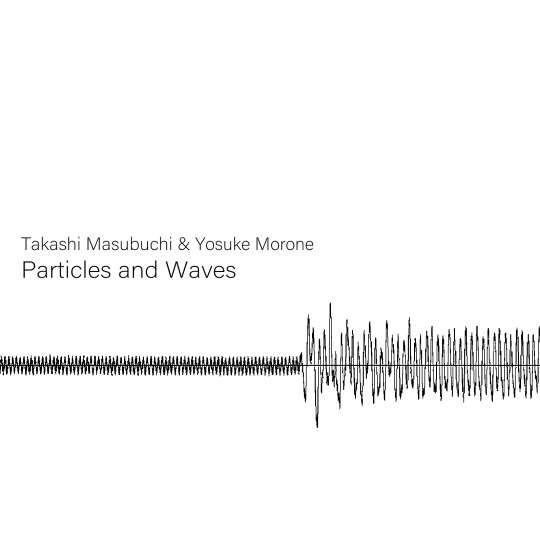
Release date: February 01, 2024
Catalog no. zappak-009
[Tracklist]
1. [ 34:18 ]
2. [ 33:02 ]
Excerpt: https://soundcloud.com/zappak/zappak-009
Takashi Masubuchi:acoustic guitar
Yosuke Morone: electronics, prepared sounds.
Recorded live at Ftarri on January 28, 2023
Recorded by Ftarri
Mixed by Leo OKagawa
---
In January 2023, zappak held a duo improvisation event with Takashi Masubuchi and Yosuke Morone. Masubuchi mainly performs improvisations with an acoustic guitar. Morone, on the other hand, plays with some function generators. This album is a record of their first collaboration.
Masubuchi used a style in which he played from beginning to end over the sustained notes produced by Morone, rather than responding to each other, on this day. Morone's sound is centered around clean, sustained sounds, but it changed shape very slowly, with intermittent interruptions and amplification of the bass, increasing its presence. The sounds blended together in a large flow. I hope you will feel the contrast between the different texture of acoustic and electronic and the way of dialogue from these performances.
2023年1月、zappakは増渕顕史と諸根陽介のデュオによる即興演奏のイベントを企画した。増渕は主にアコースティック・ギターによる即興演奏をおこなっている。対する諸根は複数台のファンクション・ジェネレーターを使用した演奏をおこなっている。本作は彼ら二人による初共演の記録である。
ここでの増渕の演奏は、相手の音に呼応するというよりも、むしろ諸根の出す持続音の上で終始自由に爪弾くようなスタイルをとっている。諸根のサウンドは潔さのある持続音が中心だが、非常に緩やかに形を変え、断続的に音が途切れたり低音を強調したりしながら増幅されていき、その存在感を増してゆく。大きなフローの中でお互いの音は融和する。アコースティックとエレクトロニックという異なる質感のコントラストと対話の手法を是非この演奏から感じていただきたい。
---
Takashi Masubuchi (増渕顕史)
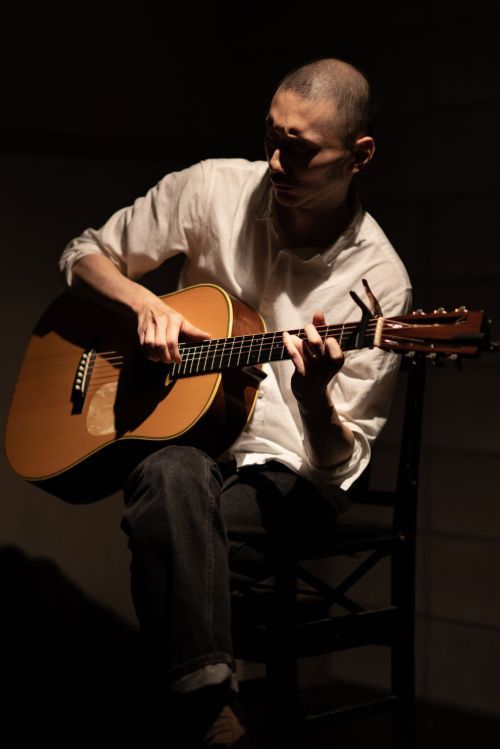
Born in 1984. Tokyo-based guitarist and improviser.
Masabuchi has been playing guitar in a variety of groups since his teens.
He began performing improvisation as a member of Pelktopia, his project with Hironobu Shimazawa (launched in 2008). Since 2018 he has been devoting himself to acoustic guitar performance.
In that year he released two solo albums, R,R,R (CD, Headlights Recordings, Portugal) and Disappearing Foliage (cassette tape, Senri Records, Japan). He also releases collaborative albums with other musicians and contributes pieces to compilation recordings.
1984年生。主に東京で演奏活動を行う、アコースティックギター・ハーモニカ演奏家。
10代の頃より様々なロックグループでギタリストとして活動を行い、その後、ブルースを基調とした、よりミニマル・ドローン的性質を持つ音楽を志向し、実験と実践を繰り返す。 さらにその後、初期衝動の持続と音楽的探求のため、アコースティックギターを用いたソロでの即興演奏を開始。
自身の身体知と情動に基づき、意図性を排したリニアかつ自然発生的演奏を行うが、自身と場に起こるイレギュラーもそれはそれとして楽しむ。
特に音列と間の概念に関心を持つ。
2018年 R,R,R (Headlights Recordings)・Disappearing Foliage (Senri Records)2枚のソロアルバムをリリースする。
takashi-masubuchi.com
---
Yosuke Morone (諸根陽介)
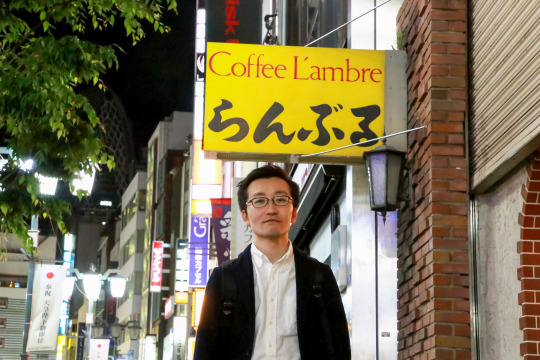
Born in Kanagawa, Japan in 1979. He Considers the relationship between music and time through his performance. A member of the critical magazine "Arazaru".
1979年、神奈川県出身。演奏を通じて音楽と時間の関係性を考察する。批評誌「アラザル」同人。
【Review】
Vital Weekly:
The Japanese Zappak label is always surprising, with music on the fringe of improvisation, sound art, and conceptual art, plus it usually introduces new names. New names such as Yosuke Morone, who plays electronics and prepared sounds in duet with Takashi Masubuchi on acoustic guitar. I know him from various releases on Ftarri, which is also the location where they played on January 28, 2023, and it’s the first time they played together. Radical music is a perfect example of what the label stands for. Two pieces on this CD are named after their duration, ‘[34:18]’ and ‘[33:02]’. The first opens with a high-frequency sine wave sound, which is piercingly loud (and I can’t imagine what it sounds like to someone thirty years younger than me), and the guitar plays individual notes, very quiet and sparse. Think Taku Sugimoto but with a backing of sine waves. Slowly, these sine waves (created with function generators) alter in white noise and, towards the end of this piece, intense bass sounds. The high piercing tones don’t return in the second piece, in which Morone’s contribution is quite different. More like obscured tape hiss, being slowly amplified. In both pieces, there is a gradual build-up towards something much louder (but not noisy). There isn’t much interaction between both players, but that’s the idea of the music here: no responding to each other. The guitar sounds clean, while the electronics are deliberately vague and strange. This works better in the second piece than in the first piece. (Reviewed by Frans de Waard)
0 notes
Text
p.o.p. (psychology of perception) [Alien Stewardess]

Release date: February 01, 2024
Catalog no. zappak-008
[Tracklist]
[Disc 1]
celestial cabaret [09:55]
cosmic concierge [26:27]
intangible vibrations [30:41]
[Disc 2]
galactic grace [20:06]
transdimensional melodies [20:42]
Excerpt:
https://soundcloud.com/zappak/zappak-008-1
https://soundcloud.com/zappak/zappak-008-2
Cello: Nora Krahl
Electric bass: Hannes Strobl
French horn: Elena Kakaliagou
Piano: Reinhold Friedl
Recorded, mixed, and mastered by Hannes Strobl in 2023.
---
p.o.p. (psychology of perception) is the acronym of the Berliner group by Reinhold Friedl (piano), Elena Kakaliagou (French horn), Nora Krahl (cello), and Hannes Strobl (electric bass) stands for.
“Alien Stewardess”, their third album, remains true to the subject, focusing on perceptual psychology and kinetic memory. “Alien Stewardess” is building on and deepening the research topics of the earlier releases: repetition and difference, like tapestry and woven carpet: patterns of similarity, rhythmic twists and varied timbres ("Täbriz", Monotype Records / 2013), and the exploration of sound architecture and the Japanese art of flower arrangement, selectively gathered materials in ever-changing combinations on "Ikebana" (FMR / 2016).
“Alien Stewardess” concentrates on the question: What do the musicians' bodies know? Four individual musicians, each with his/her own sound and body memory, create a network of interferences and thus a multiplication of the sonic-kinetic perspectives: sensual, three-dimensional, organic. Let yourself be guided by the alien stewardess in and out of time and space! Enjoy the journey…
p.o.p.(psychology of perception/知覚心理学)はベルリン在住のReinhold Friedl(ピアノ)、Elena Kakaliagou(フレンチ・ホルン)、Nora Krahl(チェロ)、Hannes Strobl(エレクトリックベース)によるグループ。
彼らの3つ目の作品[Alien Stewardess]は彼らの主題に忠実であり続け、知覚心理学と運動記憶に着目し、これまで作品での研究トピックにもとづいて構成され、さらに深められている。タペストリーや織絨毯(類似性のパターン、リズミカルなひねり、そして多様な音色)のような反復と差異による[Täbriz] (Monotype Records / 2013)、そしてサウンド・アーキテクチャーと日本の華道芸術の探究(常に変化する組み合わせで選択的に収集された素材)による[Ikebana] (FMR / 2016)。
[Alien Stewardess]では以下の問いに着目している。それは、演奏家の身体は何を知っているのか、というもの。4名それぞれの演奏家自身のサウンドや身体記憶は干渉のネットワークを作成し、それによって官能的、三次元的、有機的な音の運動学的視点の掛け算をおこなうというもの。それでは宇宙人のスチュワーデスによるガイドに身をゆだねて、時間と空間の内外を行き交いましょう!素敵な旅をお楽しみください…。
---
p.o.p. (psychology of perception) members;
Reinhold Friedl

(Photo by Olya Gluschenko)
Reinhold Friedl, born 1964 in Badeo-Badeo, Germany, is an influential figure io experimental music, a pioneer of new physical sound qualities ranging from precise sensuality to noisy harshness: his Inside-Piano taught the instrument to sing, his internationally acclaimed ensemble zeitkratzer opened up new horizons for ensemble playing, from Xenakis to Lou Reed, from folk music to Stockhausen, not to mention young (non-academic) composers and numerous transdisciplinary collaborations including film projects. Reinhold Friedl's compositions go one better: orgies of sound for orchestra, noise choreographies for string quartet, recorded by Quatueur Diotima, extended techniques worthy of the name turning the solo piano into an orchestra.
Friedl studied mathematics, composition (Mario Bertoncini and Witold Szalonek) and piano (Renate Werner, Alan Marks, Alexander von Schlippenbach) and released more than hundred CDs and vinyls. He holds a PHD from Goldsmiths University London and got commissions from international festivals as Wiener Festwochen, BBC London, the French state, Berliner Festspiele, ZKM, etc. and published numerous articles and radio features on electronic music. Touring worldwide.
www.reinhold-friedl.de
Nora Krahl

Nora Krahl is literally all over the place: She lives in different parts of the country simultaneously, she plays cello, composes, improvises with electronics, with VR Glasses and motion tracking suits. And she also is a director for experimental contemporary opera. Her abundance of ideas forms the foundation for her art and improvisational music, characterized by multilayered textures and structures. Nora has performed throughout Europe, Middle East, Asia and in the USA with ensembles as Ensemble Resonanz, the Octopus, Reflexion K, Zeitkratzer or She She Pop. Nora premiered her pieces for music and theatre in Cloud City (NYC), Hamburger Bahnhof (Berlin) or Depot Gallery (Istanbul). Nora also loves Theater and worked as a cellist at Schauspielhaus Köln, Deutsches Schauspielhaus and Columbia University New York. She was awarded numerous scholarships and attended artist residencies in Istanbul, New York City and Basel. Ms. Krahl holds a German music diploma from the Folkwang University of the Arts and a Master io Opera directing from Hanns Eisler School of music Berlin.
norakrahl.de
Hannes Strobl
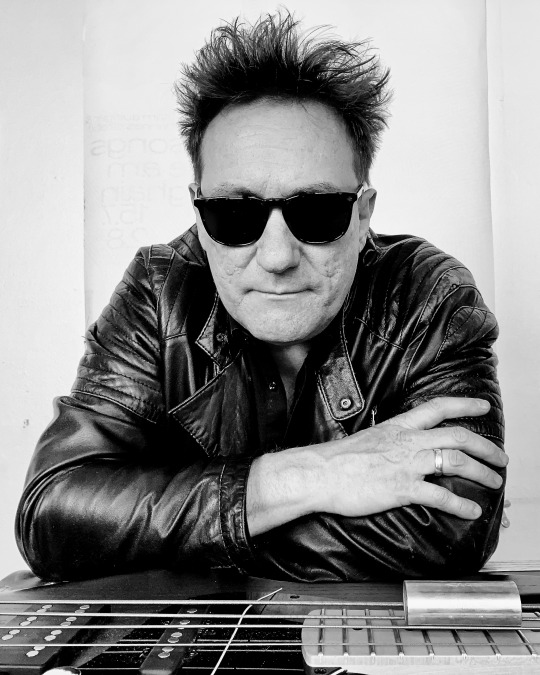
Hannes Strobl is a bassist, composer and sound artist based in Berlin.
An essential starting point of his music is the sonic potential of the electric bass guitar and the electric double bass. Hannes Strobl expands their characteristic repertoire of expression by using special playing techniques in combination with live electronics. In recent years, Strobl's interest in the instrument and his compositional work has increasingly focused on musical forms of expression against the background of urban sound space, as well as on installations whose starting point is the relationship between sound and architectural space Works io various audio and audiovisual fields, such as electronica, sound installations and music for video and performances.
hannesstrobl.de
Elena Kakaliagou
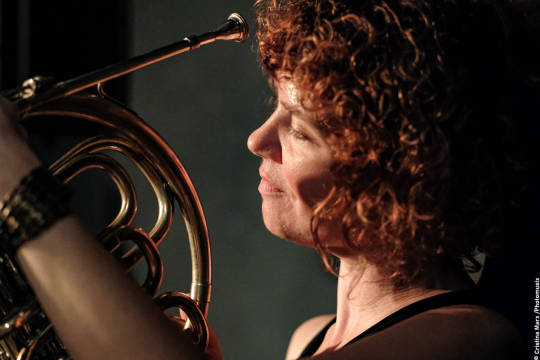
(Photo by Cristina Marx)
Elena Kakaliagou, born in 1979, is a Greek-Austrian French-horn player and performer living in Berlin. Αfter her studies io classical music io Greece, Austria and Finland, and inspired by new, folk and experimental music, Elena developed her own language on the French-horn; lyrical and mellow, angry as a wild animal or a stormy sea, calm as the wind or the soft rain. Elena can be heard on more than 20 musical albums, among others the onces of her duo Nabelóse, her trio Zinc & Copper, a solo, and plenty of collaborations of free, experimental, composed and new music.
She is an active member of the free improv scene of Berlin and plays with zeitkratzer and Stefan Schultze Large Ensemble, next to various new music ensembles. For infos about past and current collaborations, concerts, venues, festivals and stage performances of Elena, please visit her website to figure out more.
www.elenakakaliagou.com
【Review】
Vital Weekly:
p.o.p. (psychology of perception) is preferred in lowercase; I am not sure why you would write between brackets what p.o.p. stands for. Why not use one or the other but not both simultaneously? This is the CD that is not by Japanese musicians, and also to have more than two pieces of music, and is a double CD. I reviewed their ‘Tabriz’ CD in Vital Weekly 888 when p.o.p. was a duo of Reinhold Friedl (piano) and Hannes Strobl (electric bass). With their second release, ‘Ikebana’ (not reviewed in Vital Weekly), they were a quartet, adding Nara Krahl (cello) and Elena Kakaliagou (French horn). The information says, “Alien Stewardess”, concentrates on the question: What do the musicians’ bodies know? Four individual musicians, each with his/her own sound and body memory, create a network of interferences and thus a multiplication of the sonic-kinetic perspectives: sensual, three-dimensional, and organic. Let yourself be guided by the alien stewardess in and out of time and space! Enjoy the journey…” This is the sort of text that is too cryptic for me. It reads well, but what does it mean? As with the previous Zappak release, this is all very nicely improvised, albeit of a much different kind, but two discs spanning some 150 minutes of music is a bit much. In their common approach, they like their sounds to be close together, like an acoustic (almost, that is) drone, out of which small sounds pop (pun intended) up. Because their pieces are long, twenty to thirty minutes (except the first ten minutes), playing this music must sometimes be an endurance test, with full-on concentration. Each piece is like a massive and dense cloud; if you look closely, you’ll see the more minor changes. Maybe there is some chaos, too; if you listen closely, it seems as if not much of this makes much sense, and at the same time, there is that tranquil feeling, almost spacious music. Maybe it’s not strange to think of this music as a fruitful meeting of improvisation and modern composition. Great release, but very long. (Reviewed by Frans de Waard)
taz:
Neue Musik aus Berlin: :Dunkle Materie, helle Signale
Mit Radiovibes und Spieluhr in Richtung Zukunft: „Alien Stewardess“, das neue Album des experimentellen Ensemles P. O. P., ist ein Weckruf im Weltall.
Vom Webstuhl in das Weltall über den Wiesenklee, so ungefähr könnte man die Laufbahn von P.O.P. umreißen. Auf dem zwischen 2008 und 2013 entstandenen Debütalbum „Täbriz“ bezog sich das experimentelle Ensemble, damals ein Trio aus Reinhold Friedl (Piano), Hannes Strobl (Bass) und Hayden Chisholm (Altosaxophon), auf die Strukturen iranischer Teppiche. 2016 erschien „Ikebana“. Aus P.O.P. war ein Quartett geworden: Nora Krahl (Cello), Elena Kakaliagou (Waldhorn und Stimme), Strobl und Friedl spielten von der japanischen Kunst des Blumensteckens inspiriert. Für „Alien Stewardess“ sind sie unter die Sterngucker gegangen.
Die Doppel-CD umfasst fünf Kompositionen. „Celestial Cabaret“, mit zehn Minuten die kürzeste, macht den Anfang: Dunkle Materie, helle Signale, nach fünf Minuten setzt eine Spieluhrmelodie ein. P.O.P. gönnen sich auf dem Album mehrmals kurze, liedhafte Momente.
„Cosmic Concierge“ klingt in etwa wie die Radiostation, welche die kosmische Hausmeisterin auf Nachtschicht hört. „Intangible Vibrations“, eine ganze halbe Stunde, beginnt mit einem Hab-acht-Moment aus schrillem Piano-Interieur und dunklem Horn. P.O.P. ist ein Ensemble kühner Nuancen. „Galactic Grace“ könnte die große Ruhe nach dem Sternensturm sein; „Transdimensional Melodies“ entpuppt sich als Symphonie mit dem Paukenschlag, nur kommt der Weckruf vom Cello.
Dass jeder Titel auf „Alien Stewardess“ sich wie eine Krautrock-Hommage liest, kann sowenig Zufall sein, wie der Name des Quartetts: P.O.P. steht für Psychology of Perception. Wahrnehmungslehre trifft gut, worum es hier geht. (Reviewed by Robert Miessne)
Salt Peanuts:
Alien Stewardess expands and distills p.o.p.’s focus on perceptual psychology and kinetic memory, and asks what the musicians’ bodies know. The quartet searches for labyrinthian, «transdimensional» sonic architectures that rely on subtle and elusive repetitions, idiosyncratic sonic-kinetic perspectives and some disturbing interferences, with brief melodic segments. p.o.p. weaves patiently and methodically these minimalist, almost ethereal architectures like a carpet, with delicate patterns of similarity and swift, rhythmic twists, and great focus on varied timbres, using an imaginative array of extended techniques. It sounds organic but very strange yet, surprisingly, sensual. Like being guided on a mysterious journey by a friendly alien stewardess. (Reviewed by Eyal Hareuveni)
Field Notes:
Elena Kakaliagou (French horn), Hannes Strobl (electric bass), Nora Krahl (cello) and Reinhold Friedl (piano) are p.o.p., short for Psychology of Perception, and the album with the pleasantly enigmatic title »Alien Stewardess« for the Japanese label Zappak is only their third in just over a decade. The long wait since »Ikebana« from 2017 and the improv trio's rather sporadic appearances together is made up for by its running time, however: the shortest of the five tracks is ten minutes long, the longest just under 30 and the others clock in at over 20 minutes each. This can be explained by the fact that the four musicians take their project’s name seriously and allow their different perceptual mechanisms to intertwine. Their play is one of constant processing of and reaction to that of the other members, formulated less as answers than as questions: What is this doing to me, to you, to us? (Reviewed by Kristoffer Cornils)
SilenceAndSound:
Le quatuor p.o.p (psychology of perception) constitué de Nora Krahl (violoncelle), Hannes Strobl (basse), Elena Kakaliagou (cor d’harmonie) et Reinhold Friedl (piano), compose une musique de croisements et de variations superposées.
Alien Stewardess combine l’art de l’étrangeté pour brouiller les interférences constantes qui viennent perturber avec subtilité, la combinaison créatrice des quatre artistes.
Les pistes sont un terrain de jeu, où les instruments s’évadent de leur vocation première, pour se transformer en formes singulières, avalanche de péripéties spectrales et d’ombres projetées sur des canevas de couleurs indéfinissables.
p.o.p. (psychology of perception) accumule les directions sans chercher à s’éloigner d’une certaine fantaisie grimaçante aux allures hantées. Ici tout est jeu d’ombres, de grincements et de flottements, de temps étirés et de perte de repères. Fascinant. (Reviewed by Roland Torres)
Westzeit:
Das dritte Album der Berliner "impro-supergroup" P.O.P. (PSYCHOLOGY OF PERCEPTION) heißt sehr treffend "Alien Stewardess" (Zappak) und erscheint auf dem dritten Label, auf Monotype (Täbriz von 2013) und FMP (Ikebana 2016) folgt nun die japanische Plattform Zappak - Nora Krahl (clo), Hannes Strobl (el.b), Elena Kakaliagou (frh) und Reinhold Friedl (p) verteilen ihre Gaben weitläufig. Was mich an dem auf 2 CDs verteilten 5-Viertelstunden-Monster besonders beeindruckt ist die klangliche und konzeptionelle Dichte, die die Vier mit vergleichsweise einfachen Mitteln erzeugen. Neben hallendem StörSpannungsKnuspern schweben da eigenartig geflochtene CelloSounds zu PianoPräparaten und Kakaliagous unverwechselbaren HornKnurren durch die Gehörgänge. Für den vollen immersiven Genuß erfordert das Ganze allerdings auch ein wenig Konzentration und Kontemplation. 5
1 note
·
View note
Text
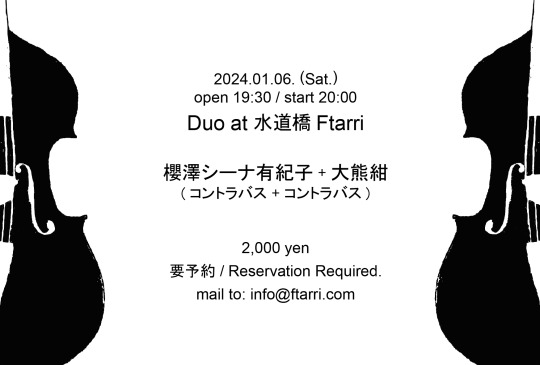
【Gig Info】 (zappak organized)
Duo: 櫻澤シーナ有紀子 + 大熊紺
Date: 2024.1.6 (Sat.) open 19:30 / start 20:00
Venue: 水道橋 Ftarri (Suidobashi, Tokyo)
Admission: 2,000 yen
Reservation / Ask anything: [email protected]
*Reservation required; When making a reservation, please write your name, phone number, and the number of persons.
(要予約: 定員20名、当日券の販売はありません)
問い合わせ / 予約: [email protected]
*氏名、人数、電話番号をお書きください
(コロナ感染状況によっては予定が変更となる場合があります)
Ftarri Website: https://www.ftarri.com/suidobashi/
Ftarri Address: Okano Bld.B1, 1-4-11, Hongo, Bunkyo-ku, Tokyo
[Duo]
Yukiko Sakurazawa Shiina / 櫻澤シーナ有紀子 (double bass)
Kon Okuma / 大熊紺 (double bass)
0 notes
Text
『idiorrythmie』セルフライナーノーツ by Shuma Ando
私の家の窓から(1976年12月1日)、子供の手を引いて空っぽのベビーカーを押しながら歩く母親が目に入る。彼女は平然とした様子で歩いていくが、子供は引っ張られ、ぎくしゃくとした足取りで、たえず駆け足にならざるをえないのだった。まるで家畜か、鞭に打たれるサドの小説の犠牲者のように。彼女は自身のリズムで歩いており、子供のリズムが異なるものであることを理解していないのだ。(拙訳)
Roland Barthes, Comment vivre ensemble : simulations romanesques de quelques espaces quotidiens : note de cours et de séminaires au Collège de France, 1976-1977, Seuil : IMEC, 2002, p.40.
今日においてリズムという言葉は、他者を抑圧する権力性と切り離せないものであるとバルトは考えた。ある年のコレージュ・ド・フランスでの講義を「いかにしてともに生きるか」と題したバルトにとって、かようなものとしてのリズムがなんとしてでも避けられるべきものであったことは言うまでもない。そこで彼は講義を始めるにあたって、語源をたどりつつ、他者を抑圧しないもう一つの、あるいはむしろ本来の「リズム」を示す概念をもち出す。「イディオリトミー(idiorrythmie)」—それは端的に言えば、それぞれの主体が自分の固有のリズムを保ちつつ、それを相手に強いることなく共生するということである。
バルトが追い求めたものは、たしかにひとつのユートピアであったかもしれない。しかし、音楽はユートピアを垣間見させてくれるものに他ならない。針尾電波塔という奇妙な場所に赴き、なんの取り決めもなく楽器を鳴らしはじめた私たちは、相手の出す音に耳を傾けることもあれば、塔の反響や外の音とともにそれを聞き流すこともあった。あるいは、自分の音を聞く相手の存在を意識することもあればしないこともあった。当日の朝に初めて会ったばかりの私たちにとって、相手の存在は透明なものではもちろんなかった。それはつねに、やんわりとした異物として頭の片隅に存在していたはずである。しかるに他方で私たちは、相手の存在に気づまりを覚えるようなこともなかった。「作品」としてリリースすることなど念頭になかった私たちは、気ままに自分の音を鳴らし、気ままに相手の音に反応した。私たちはそれぞれ、自分のリズムを崩さぬままに相手のリズムと戯れたのである。
私と異なる主体が、しかも私を抑圧せずに—それどころか私にとって悦ばしいものとして—私とともにある。私たちは本作の実践にイディオリトミーというユートピアを見たわけである。しかし本作のイディオリトミーは、演奏者の二人ともまた異なる、聞き手であるあなたが、あなた自身のリズムで接したときに、よりいっそう豊かなものとなるだろう。したがって私たちはこの言葉を、自由にその意味をずらしていくことができるものとして開いておくこととしよう。
本作の曲名はすべて文学作品を参照したものである。以下にその引用元を記しておく。
bifurcation(分岐)
このアルバムは「bifurcation」にはじまり、「biffure」におわる。この、意味はまったく異なるが見た目はよく似た単語を用いた言葉遊びは、ミシェル・レリス『ゲームの規則I 抹消』を参考にしたものである。2人の演奏者がそれぞれに分かれていくことの予言としてこの単語を借用した。
en avançant dans la prose je rencontre(散文を書きすすめながら、私は出会う)
ジャック・ルーボー『ロンドン大火』のある断章の章題からの引用。この章では、言葉を書き連ねていく上での逡巡や、一つの事柄について書こうとするときに出てくる膨大な選択肢への戸惑いが率直に語られる。それは、即興演奏の際に直面する事柄と響き合う上に、一つの線から複数の選択肢が生じてくるというもう一つの「分岐」でもあるという点で、1曲目のタイトルにも呼応するものである。
les cyprès ne bougeaient pas(糸杉は動いていなかった)
同じく『ロンドン大火』の断章の章題からの引用。病死した語り手の妻が撮影した写真について語られるこの断章は本書でもとりわけ有名な箇所である。ブレた糸杉が写されたその写真を見た語り手は、しかし撮影の瞬間に風など吹いていなかったことを思い出す。それは病身の妻の荒い呼吸によって生じたブレであり、つまり写真はここで、単に目の前の対象を固定するメディアであることをやめ、カメラのこちら側にいる人物の身体の動きや息遣いを喚起するものとなっているのである。この章題を引用したのには、一つにはこの曲が演奏者の平木氏の姿を浮かび上がらせるようなものだからである。しかしさらにもう一つ、今回の録音のあり方に関連する理由がある。つまり、一人の演奏者とその演奏を聴く一人の傍観者は、互いに相手の息遣いをかすかに感じ取っていたはずであり、録音にもそんな二人の人間の息遣いを喚起するものがあるのではないかと考えたのである。
les ombres errantes(さまよえる影たち)
パスカル・キニャールの同名作品からの引用。死に関する古今東西の題材をもとに断片形式で書かれた作品である。分岐していた二人の人間はこの曲で合流し、それぞれの声が重なり合う。それらは塔の深い残響のなかで、あてもなくさまよう影となる。
biffure(抹消)
—そして抹消線が引かれる。
-----
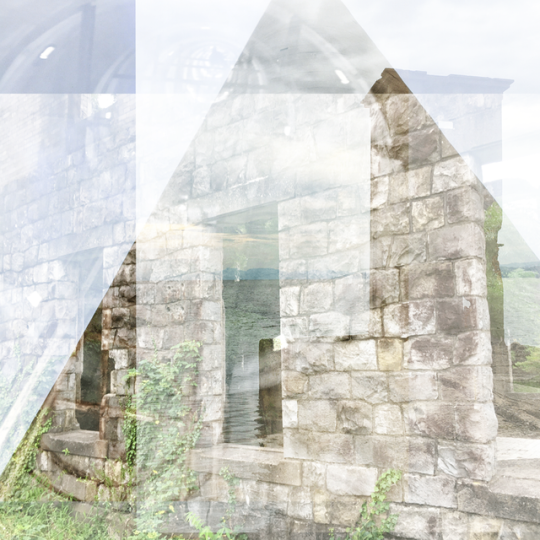
photographier, collage by Shuta Hiraki (2022.09.02)
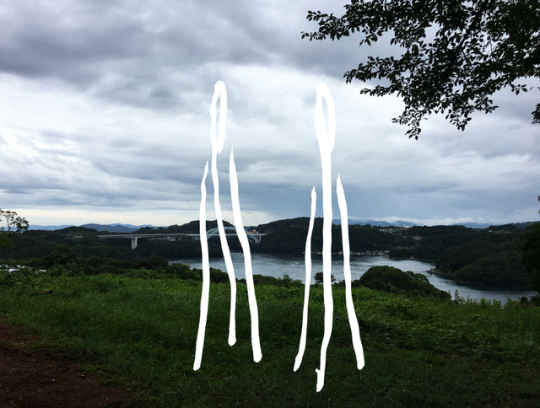
photographier, découpage by Shuta Hiraki (2022.09.02)
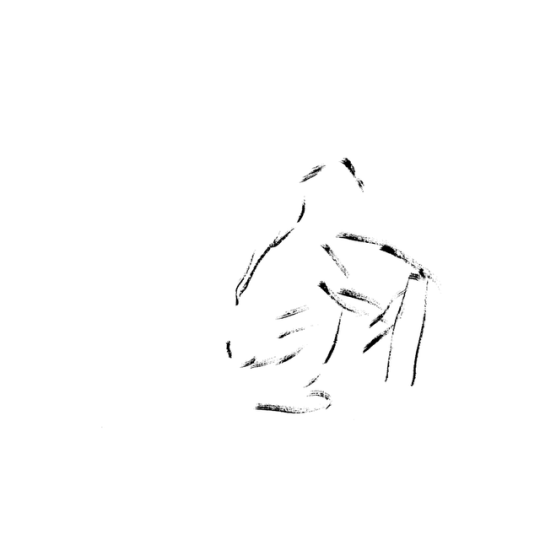
dessin by Shuta Hiraki (2022.09.02)
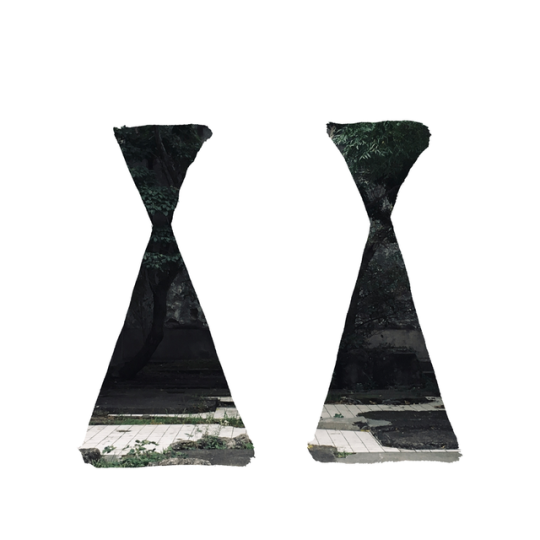
photographier, découpage by Shuta Hiraki (2022.09.02)
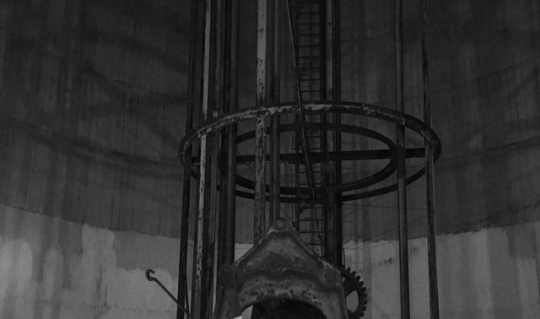
photographier by Shuta Hiraki (2022.09.02)
0 notes
Text
NEW REVIEWS ON VITAL WEEKLY
On the latest Vital Weekly number 1402/week 37), both zappak-006 & 007 are reviewed.
http://vitalweekly.net/1402.html
Various releases by the Japanese Zappak label have a conceptual edge, so maybe it is surprising to see a release by Olivier Prieur's project, The Dead Mauriacs. Less conceptual and more surreal, I would think. Prieur has been active since the mid-90s, mainly with fanzine and since 2009, there have been some forty releases by his group The Dead Mauriacs, which is primarily his solo project but with the help of others. such as Susan Matthews, Vincent Domeyne, Thorsten Soltau, Jan Warnke and Michael Esposito. One of the things I don't understand about various of his releases is that there is a long track (or two on this particular release), but the credits are such that the first has seventeen parts and the thirteen in the second. Why not create individual markers for each piece? I use surreal music, for Prieur's music bounces all over the place, with sounds plundered left and right, some played by the composer, some surely not. Prieur uses Ableton Live, MIDI keyboards, real and fake instruments, Larsen, and field recordings. The computer is the playground of the music. Lots of music from the past, like big band or jazz pieces from movies, black and white movies and at times very exotic. There's a piano here, voices there, and acoustic sounds thrown about. The term musique concrète applies to all of this, but with those recognizable sounds, this is a highly exotic version of the genre. Think Pierre Schaeffer meeting John Oswald, spliced together by Nurse With Wound. Radio-play capacities, but with the story being whatever you decide to make of this. The titles, all in French and English, sometimes may give way to what we hear, 'Machinerie et artifices / Machinery and fireworks', but sometimes seem more poetic, "Progression du cavalier espagnol / Progression of the Spanish rider" or "Suspense aux yeux clos / Suspense with closed eyes". The exotic element brings back memories of when strange music was hip again in the mid-90s, but I assume Prieur uses it with a different intent. Not to please and be casual about it, but to create an atmosphere of days gone by, just like his approach to electronics harks back to the fifties—a wild and enjoyable ride, controlled and executed with great care.
The other new release by Zappak has a slightly more conceptual edge. I don't think I heard of Shuta Hiraki and Shuma Ando before. They went to the Hario Radio Tower, built in 1922, 136 meters tall, the tallest structure built before World War II in Japan—a place with much reverberation. The two musicians brought in "shruti boxes, percussion instruments, and objects, and did improvised performances for over two hours", which were edited into the five pieces on this CD. Each track has the two musicians on one thing, so the first has "some percussions and objects" the second and third Ando on the Shruti box. At the same time, Hiraki is a bystander (actually, those roles are reversed in the third piece), the fourth has two voices, and Hiraki blows the whistle on the last. The bookend pieces are short, and the others are long, with the longest being twenty-one minutes (the centrepiece). When they started recording, it was windy and rainy, but during the day, things cleared up a bit; nevertheless, the raindrops played from time to time an important role. The two pieces with the Shruti box take up a significant portion of the release, and within that large space, it travels well. Maybe the two did something with the microphone's position, moving slowly around, as the music has a fine, delicate, changing balance. The improvised aspect is not lost in all of these pieces. Yet there is none of the chaos and hectic that could happen. Being in this large space means they allow the sounds to travel in that environment and wait for them to die out. The voice piece least enamours me, but I enjoyed it all throughout. The idea to record improvisations in a big space is nothing new, but these two players do an excellent job. (Written by Frans de Waard)
0 notes